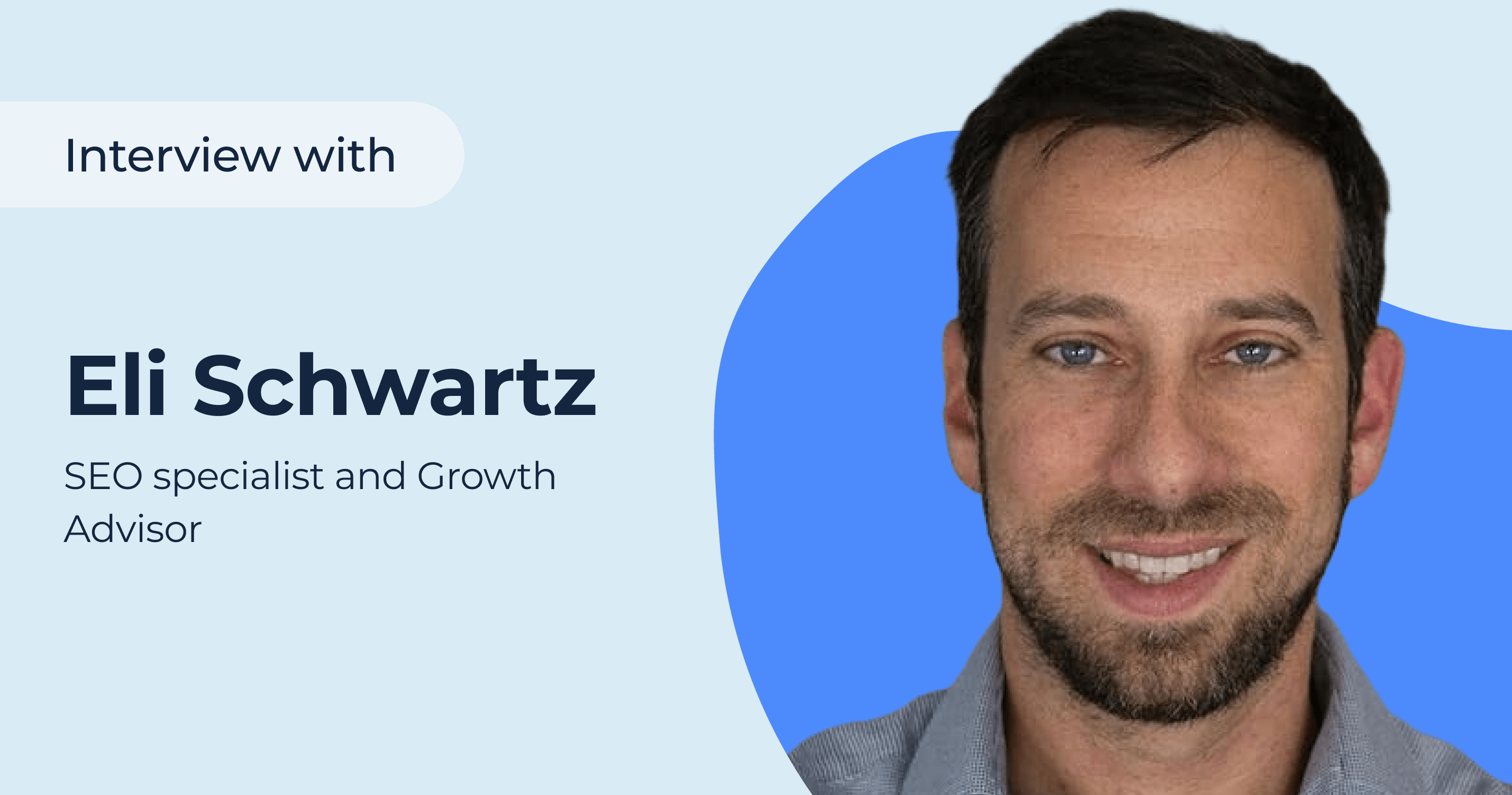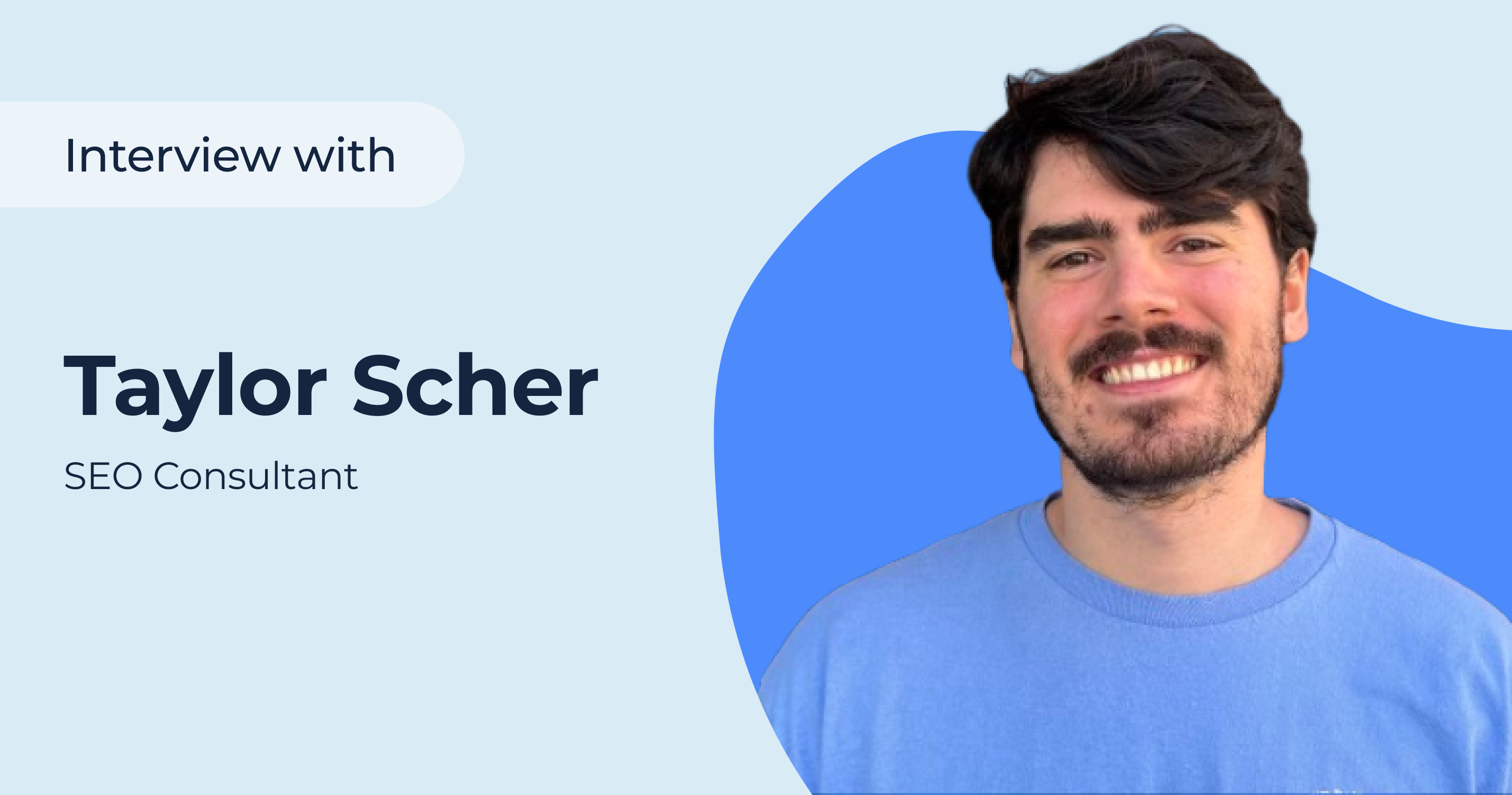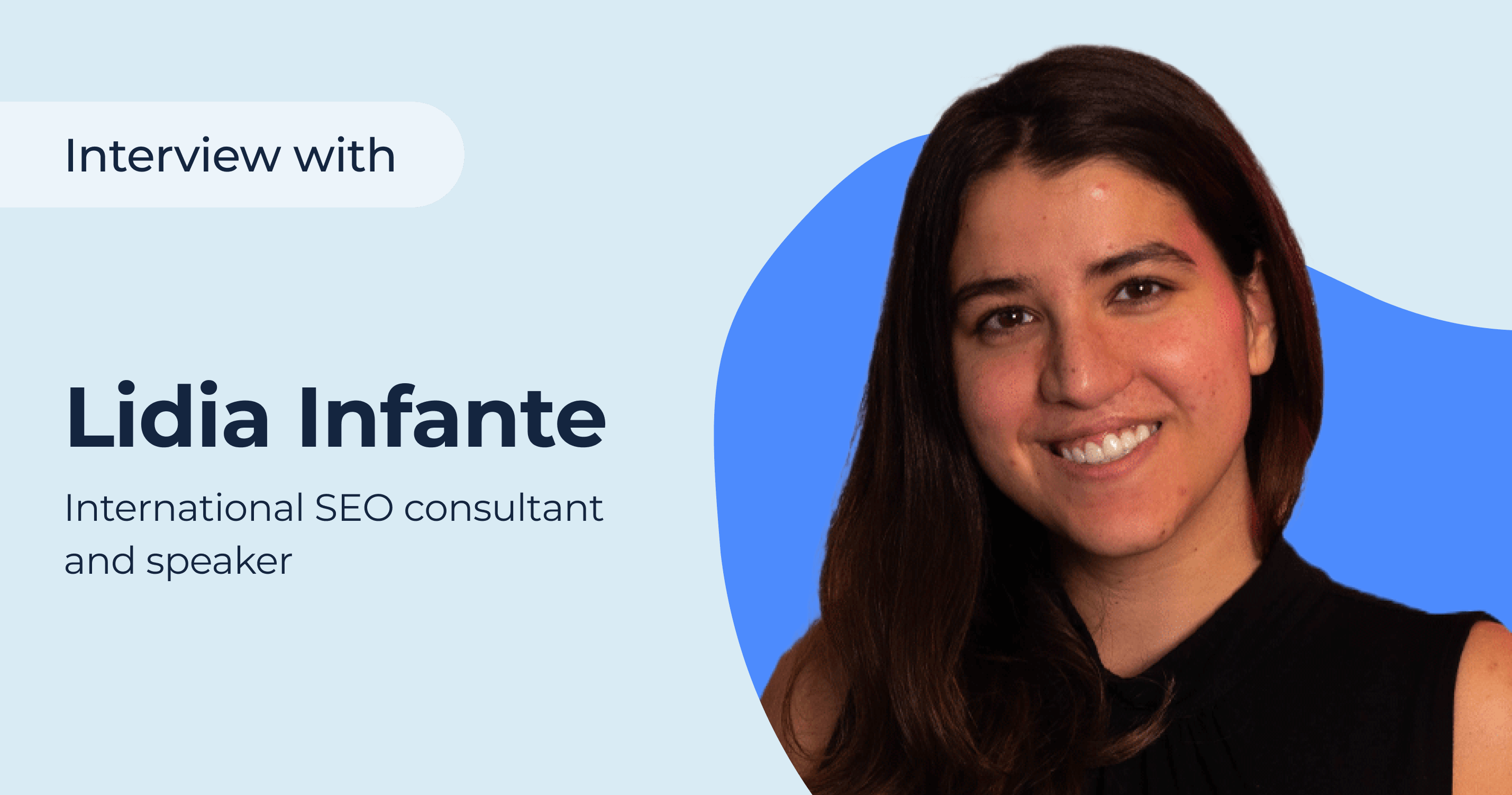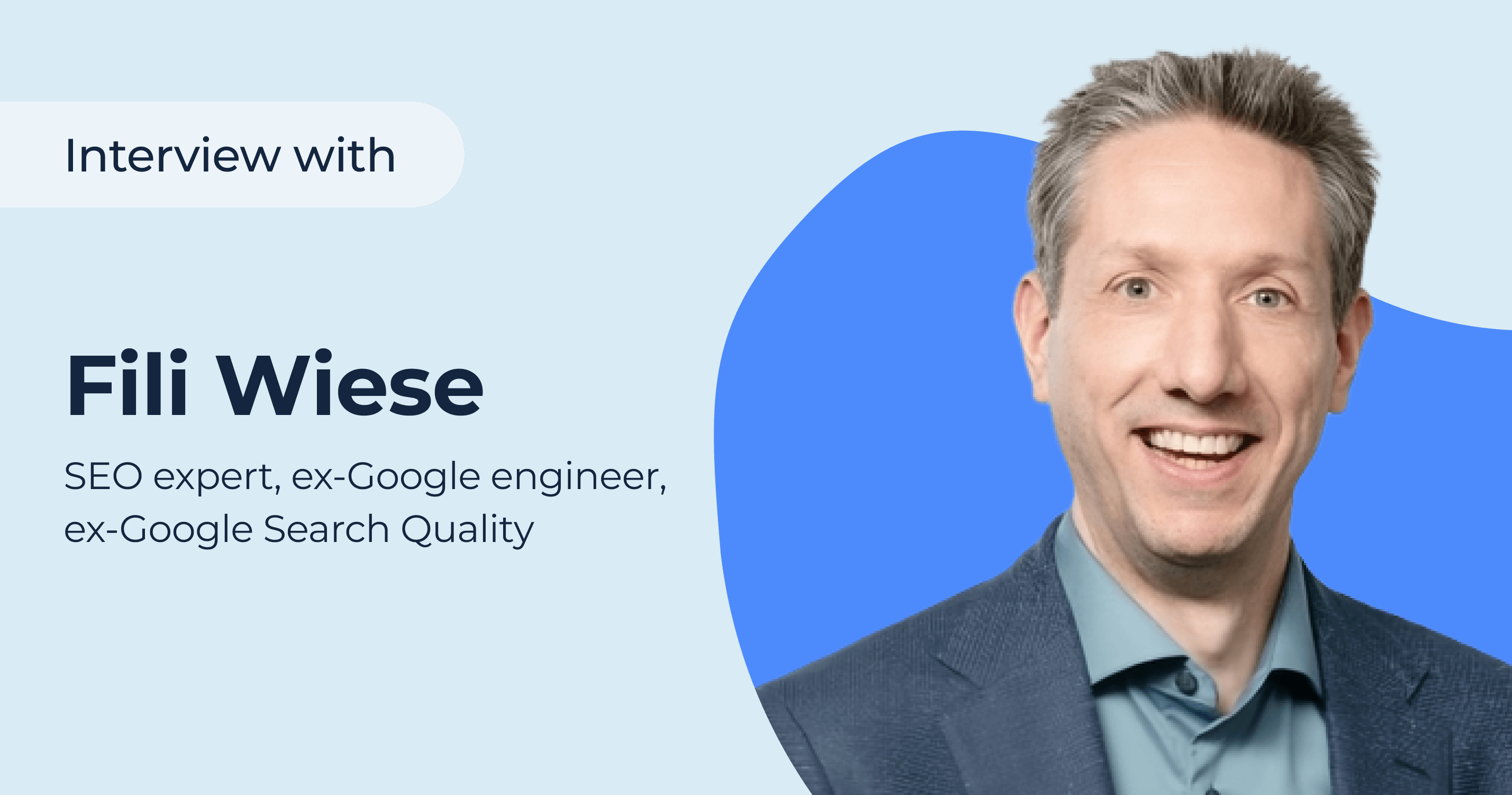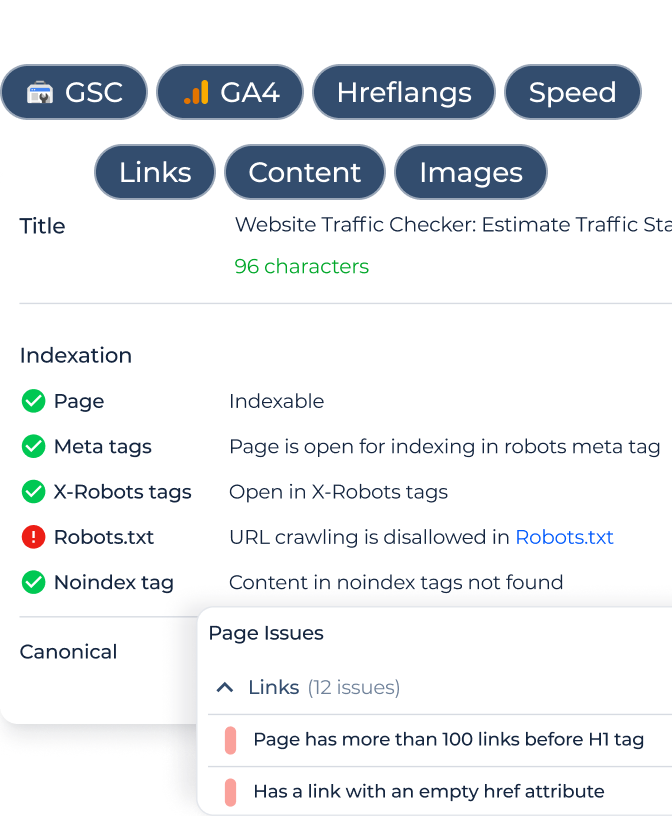We have great news! Eli Schwartz well-known SEO expert and Consultant on Growth & International Marketing shared his practiced knowledge with Sitechecker team. Eli Schwartz led the SEO team at SurveyMonkey in the past. He also has over ten years of experience managing successful SEO and growth programs for leading B2B and B2C companies. Among the companies, he helps to create and implement global SEO strategies are Zendesk, BlueNile, Quora and Shutterstock, thanks to his skills and experience, such companies significantly increase their organic visibility in search engines.
To know more about Eli, follow him on Twitter or visit Website.
So let’s start! Spread your knowledge about SEO with Sitechecker and Eli Schwartz:
1. How many years of experience in digital marketing do you have?
It really depends what you call digital marketing! I had my first experience running an online ad campaign at least 16 years ago, but it took a bit longer until it became my career.
2. How did you learn SEO?
I learned SEO by reading every book and website I could. I loved Aaron Wall’s SEO book as it went through everything possible about SEO. I truly learned SEO, though, by building my own websites and testing.
I have worked in many areas of digital marketing, but I have spent the most time within SEO functions.
Eli Schwartz, Growth Advisor, Speaker, and writer on product and marketing topics.
3. What type of digital marketing you have the strongest skills?
I have worked in many areas of digital marketing, but I have spent the most time within SEO functions.
4. SEO is such a controversial thing. Every SEO specialists rate its success differently. What is your way to rate SEO success? What metrics do you look at?
I don’t agree that SEO is controversial at all! SEO done right is as straightforward as can be, it’s only when people are trying to sell some sort of sneaky method that there can be an argument over whether it is accurate or above board. With that in mind, I would measure SEO success by sustainable growth in organic traffic year after year.
5. What projects are you proud of?
In 2010 I was working on a site that lost 80% of its traffic due to the Panda update. I was able to recover all of that traffic and then some by re-architecting that site.
6. What training do you have as an SEO analyst or specialist?
Trial by fire! I spend a lot of time looking at data to try to understand what works best in search.
The most underrated SEO task is really the simplest – talking to users.
Eli Schwartz, Growth Advisor, Speaker, and writer on product and marketing topics.
7. What are the TOP-3 errors you made at the beginning of your digital marketing career?
When I first started in digital marketing I didn’t understand the marketing and people aspect of digital marketing and instead looked for shortcuts. I also could have spent more time going to conferences and learning from others that have done things so I would not have to repeat the same mistakes. The final thing I should have done earlier is taken more risks!
8. What SEO tactics do you think are underrated?
The most underrated SEO task is really the simplest – talking to users. Too many people don’t focus on the user in doing SEO and miss out on how easy it might be to learn from real people on how they might use a website.
9. Do you have any experience managing a marketing or SEO team? What were the biggest challenges?
The biggest challenge with managing a team is that SEO might not be the most respected function in a company, but as a manager, I need to make sure my team gets the respect and resources they need to be successful.
10. You are noticed at many digital conferences. How important live communication is for business? How does it work for you?
In the days of amazing virtual communication, I still think in-person connections are so valuable. The casual conversations that happen in person that help build relationships simply cannot be built over a Hangout.
11. Do you believe that back-links are Google’s past? Is link building important for increasing the website’s positions nowadays?
Backlinks are very important in the algorithm, but the value of links for the sake of links has decreased. Only the right links help a site’s rankings but it’s impossible to know which links are the ones that help. I think a site should focus on building its brand and if they get links, they get links.
I think SEO will continue to grow in importance especially if we experience an economic recession.
Eli Schwartz, Growth Advisor, Speaker, and writer on product and marketing topics.
12. In your opinion, does the technical health of the website affect the ranking positions in search engines?
For larger websites, technical SEO will help a site grow faster than anything else, but for smaller sites, it’s unlikely that there are things that are that broken that they are holding back growth.
13. How do you see the future of SEO (in 5 years)?
I think SEO will continue to grow in importance especially if we experience an economic recession. There are so many large sites that have not yet invested in SEO and there will always be sites that need help translating their value proposition to search engines.
14. Should a business have a corporate blog?
If it’s just corporate updates it is probably easier to just have social media updates.
15. Which SEO or marketing tools can you recommend as a must-have for every SEO specialist?
I think that everyone in marketing needs to know how to manipulate data in Excel or Google sheets and this would be my number one recommended tool. There are lots of other choices around crawling, backlinks and visibility and those in my toolbox are Oncrawl, Deepcrawl, Ahrefs, and Rank Ranger.
16. How can start-ups and early-stage businesses use SEO effectively to drive traffic to their site?
I don’t think SEO is that valuable for startups, so at the early stage, startups should just make sure they don’t screw up their SEO efforts for when they are ready to devote time and energy to an organic channel.
17. What advice can you give for those who are just starting their career in digital marketing?
Don’t read books or blogs, build a website and start learning with real campaigns and real data!
